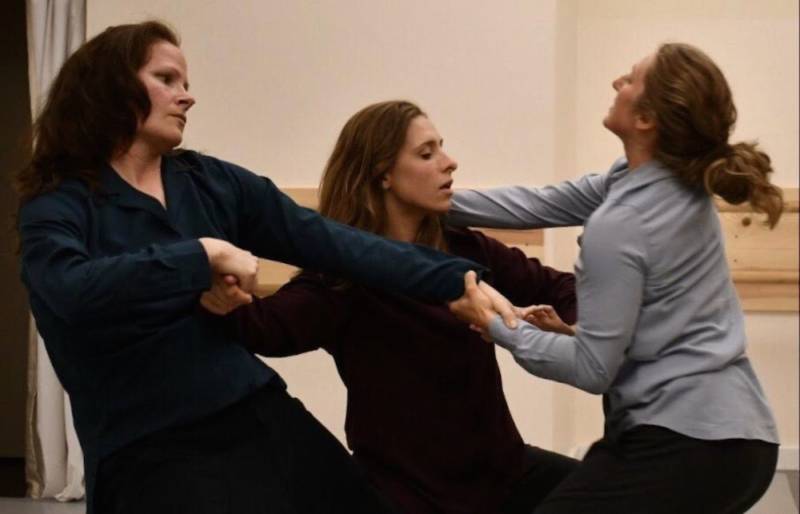Although her name is instantly recognized by even casual theater-goers, Sarah Kane’s works have long struggled to find a foothold in the Bay Area. With a few exceptions (such as Shotgun Players’ 2017 production of Blasted), Bay Area companies shy away from her passionately bleak worlds and imperfect, struggling characters.
This struggle is not confined solely to her stages. Like other creators of visceral worlds tinged with violence, surrealism, and self-loathing—the Kurt Cobains and the Sylvia Plaths—what Kane will probably always be known for, above all, is her untimely death by suicide at the age of 28.
With their production of Kane’s final play 4.48 Psychosis at the small studio stage of Oakland’s Temescal Arts Center, Anton’s Well Theater Company further cements their commitment to bringing the unusual and the overlooked to the Bay Area. (Other recent productions have included The Human Ear, by Alexandra Wood, and Tender Napalm, by Philip Ridley.)
What makes 4.48 unique, even for Kane, is the fact that it consists solely of text, split arbitrarily into 24 sections, no character names, no stage directions, no indication at all of how it should be presented, or even how many actors should be in it. In fact, it reads like a poem, the kind that would not be out of place in an anthology dedicated to new, experimental works. There are even whole sections consisting solely of numbers displayed in a sequence whose meaning is known only to their author.
In short, it’s a challenge.

Director Robert Estes rises to this challenge with the capable assistance of choreographer Bridgette Loriaux, and a strong cast of three women: Anastasia Barron, Jody Christian, and Adrian Deane. Beginning on three separate corners of the stage, the three advance to the center of the room to dance to the pre-recorded strains of a cello, filling the room with urgent melancholy. Clad in matching trousers of loden green, and button-down shirts of light blue, deep teal, and maroon (costume design by Katja Rivera), they come together only to pull apart, not just once but throughout the play, like pieces of a fragmented mind trying to put itself back together again.





